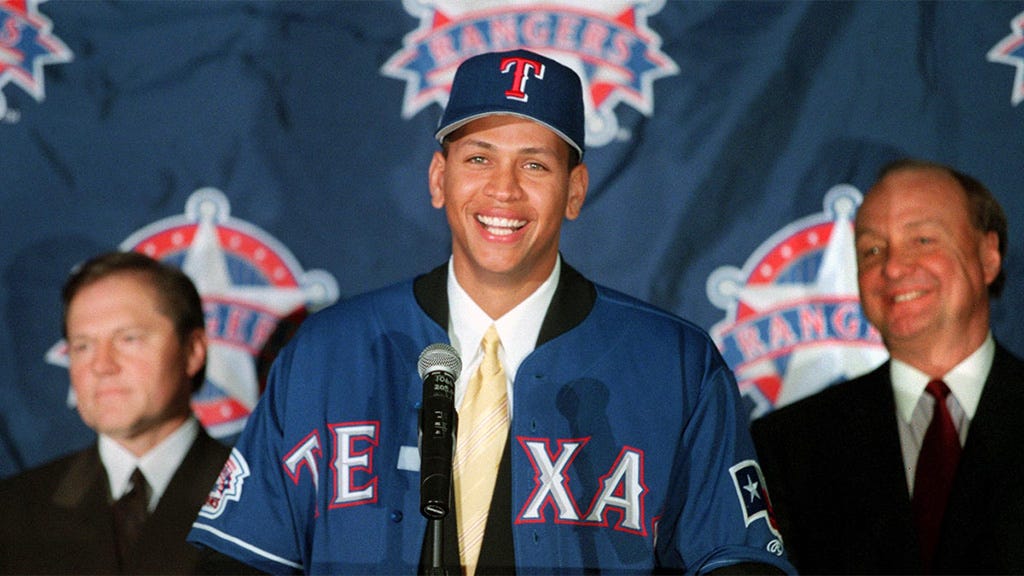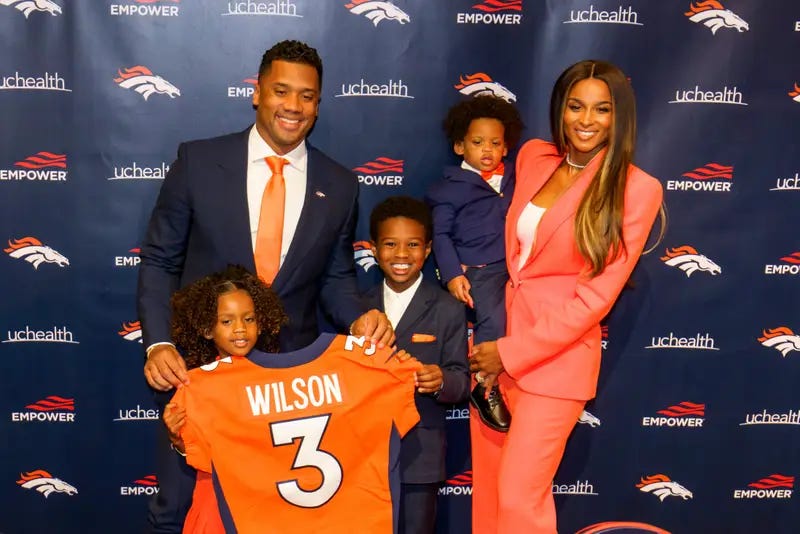Russell Wilson's demands were unreasonable
"He's the guy that ruined it for everyone" - NFLPA president on Russell Wilson
The term “sports business” could be called an oxymoron because most of us were raised, in some capacity, to participate in competitions out of a necessity to build character, learn life lessons, and survive a dog-eat-dog world. We joined Little League or did spelling bees “for the love of the game” and couldn’t expect monetary gains from it, so getting to the professional level of sports sort of magnifies that there is a conflict of motivations when money is involved. In turn this can sometimes build resentment between fans and players when it comes time for free agency.
The first time I was struck in the face with a baseball bat that had “sports business” inscribed in its handle was the year 2000:
This December will be the 25th anniversary of 25-year-old Alex Rodriguez signing a $252 million contract with the Texas Rangers.
I know many of you are still angry with Rodriguez (and now even more in Texas, as they finished in last place in each of his three seasons there) and maybe I would be right there with you if I still cared about baseball. But is there a single other industry in which we would get personally offended because someone spurned one organization for another over a (MUCH) better salary offer?
It was not as though the Mariners offered as much or more than the Rangers (Seattle may not have even been in the top-5) and professional athletes don’t usually take into account whether they “owe it to fans” to stay for less money because they were warmly supported at the beginning of their careers. The problem there is supply and demand: A-Rod would have been the most popular player in any city that he played for, so to steal a word from Shark Tank’s Mr. Wonderful, there’s nothing “proprietary” about being loyal fans.
It’s not like being used or discarded at opportune times is unique to sports: Companies and people are constantly used as stepping stones for better opportunities in EVERY INDUSTRY, but with sports it does feel personal.
We are only offended because it happened in sports.
For these reasons, I’ve never really been offended by Russell Wilson’s decision to force a trade — or to at least heavily imply that a trade would be in Pete Carroll’s best interest if he wanted to keep his job — because when you’re a 34-year-old football player who has already won a Super Bowl and felt what its like to being at the pinnacle of your sport, what else is there left to do but cash in when you know that more cash could be available?
Exhibit A: If Wilson had done the noble thing and waited until his contract expired before he asked for a new one, he almost certainly would be left sitting in the same position he is now as a “washed up" quarterback desperate for the last available starting gig in the NFL.
The only difference would have been a net loss of $124 million for Wilson and that’s significant when you have to support Ciara’s entire family.
However, recently released details of Wilson’s contract demands during his negotiations with the Broncos after he was traded to Denver put his desperation for “one last ride” into another light and make it even more obvious that the Seahawks had no other choice but to move him (and his contract) as soon as possible.
Wilson got the Broncos to move heaven and earth for him despite having two years left on his contract, but he wanted even more until Denver finally had to say “hell no".
And just in case anybody forgot because hindsight is 20/20, the Seahawks were ridiculed and panned for trading Wilson to the Broncos, even at the return of two firsts, two seconds, and three players. ESPN’s Bill Barnwell wrote that Seattle had “the worst offseason in the NFL” that year and as usual the mainstream media got in line with whatever the most popular opinions on Twitter were at the time.
The Seahawks were called “tankers” and the Broncos were seen as Super Bowl contenders.
But in reality, maybe Wilson knew that his best days were over and that’s why he wasn’t willing to wait another year for an extension or two years for free agency. Based on what he wanted the Broncos to give him (and therefore what he wanted the Seahawks to give him which prompted a trade), Wilson comes off as a player who felt he needed to cash in before it was too late:


